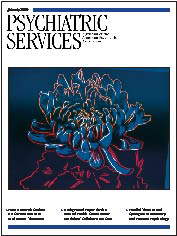What's Wrong With Addiction?
The most common questions I receive as an addiction psychiatrist are, "How do you know when someone is addicted?"; "Can't anything be considered addictive?"; and "How can you stand to work with addicts?" Interestingly, the answers to these questions are not simple. A number of theories have tried to explain the concept of addiction, often standing in stark contrast to one another. These theories range from the medical model (addiction as a neurobiological disease) to models of morality (addiction as conscious self-destruction).
These are the primary issues that Helen Keane, Ph.D., takes on in her book What's Wrong With Addiction. The book is an extended analysis of the ambiguities of addiction. Keane is a research fellow at the National Centre in HIV Social Research at the University of New South Wales in Australia. Her principal theme is that discourse on addiction can have a powerful impact on society by influencing those who are involved in the decision-making process. Popular culture, politics, and the medical fields have portrayed addiction as a disease. As a result, addicts are considered to be without free will, "compelled" to stay with the addiction. As a result, freedom is lost, resulting in further stigmatization.
Keane describes why it is considered "bad" to be labeled an addict and also explains how concepts of addiction are shaped through discourse surrounding its own definition, societal portrayal, political regulation, and scientific research. Addiction, for Keane, is not so much about lack of self-control as it is about perverse desire: "Addiction is a state marked by caring too much about the wrong things, and not enough about the right things."
The book is divided into three sections. The first three chapters frame addiction as a disease of the individual by describing a pharmacologic understanding of how drugs lead to addiction, exploring the substance dependence syndrome, and discussing the impact of self-help literature on addiction. The middle chapters describe concepts of addiction to behaviors and substances other than drugs or alcohol—namely, nicotine, food, and sex. Conspicuously absent is an analysis of gambling with reference to concepts of addiction, which is surprising given the recent increase in the popularity of gambling as an activity and as an area of academic study.
The book concludes with an analysis of the recovery process and how concepts of health, habit, and conduct are involved. Keane ends by describing addiction as a habit, not a disease. This conceptualization would in turn, she argues, remove the need for labeling patients with addictions as good versus bad or as motivated versus unmotivated and would instead focus on modifying habits that are already in place.
Overall, What's Wrong With Addiction is written in a scholarly fashion and is designed primarily for anyone who has struggled to understand what it means to be addicted. Keane's work is thoughtful and thought provoking and incorporates elements of medical history and philosophy. The arguments are compelling, but the highly intellectualized writing and the abstract concepts presented make reading this book an investment of time and energy. It is not a clinically useful book, nor will it immediately help patients and families who are struggling to manage the direct consequences of addiction. Rather, this book's strength is in its delivery of an important reminder to all stakeholders who work with addiction to critically rethink current concepts of mental and medical health.
Dr. Fong is assistant clinical professor at the Neuropsychiatric Institute and Hospital and director of the gambling studies program at the University of California, Los Angeles.



